Receive Our Newsletter
For news of readings, events and new titles.


The 2022 prize received seventeen submissions, most of them novels, from across the Arab world. These reflect the great diversity of writing practices today, from lengthy historical novels, rich in material detail, to satires of recent history (noticeably the political intrigues of student movements), to gripping romances, and works of structural experimentation that ambitiously revisit events from the Palestinian nakba to the aftermath of the Arab Spring. From satirical short stories to poetry that stretches the limits of language and imagery, the list’s strength is in its creative breadth, and consistent quality.
The judges were initially asked to submit a list of their preferences for a longlist. This list, of twelve titles, was discussed in a meeting to ascertain a joint shortlist and winner. The length and complexity of this discussion reflected the incredible and varied strengths of the works submitted, which proved hard to narrow down. Judges were torn between the ambition of the original work, the accuracy and flair of the translation, and the range of literary genres and styles with which they were presented. While the works proved hard to narrow down, the judges consistently agreed on the outstanding strengths of three works, selected for the shortlist, which offers an exciting snapshot of the generically and stylistically diverse longlist, and one in which translation quality is at the very forefront.
Prof. Susheila Nasta commented that, “At its most powerful literature should act as an imaginative passport into other worlds, a conduit to take us inside the lives of others, inviting us for a moment to stay and be part of an unknown world. Words transport as do good translations. At their best translations also take us elsewhere, offering readers stories in cultural landscapes they would not otherwise encounter. The Saif Ghobash Banipal Prize for Arabic Literary Translation makes this journey possible.”
The Men Who Swallowed the Sun by Hamdi Abu Golayyel (Egypt)
Translated by Humphrey Davies
Publisher: Hoopoe Fiction (an imprint of AUC Press)
Hot Maroc by Yassin Adnan (Morocco)
Translated by Alexander E. Elinson
Publisher: Syracuse University Press
Slipping by Mohamed Kheir (Egypt)
Translated by Robin Moger
Publisher: Two Lines Press
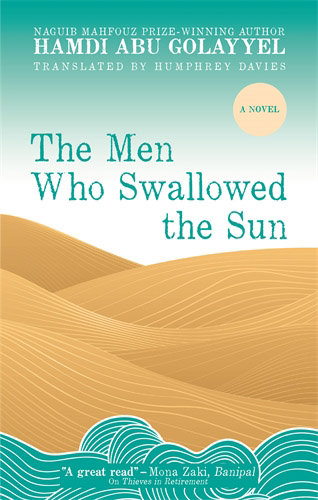 Hamdi Abu Golayyel’s The Men Who Swallowed the Sun is a harsh, gritty tale of migration in pursuit of a better life, switching between registers of Arabic through the intimate and irreverent voice of its narrator, as we move from Egypt’s Western Desert to Sabha in the South of Libya, across the Mediterranean to Italy. The novel has overtones of the Arabic oral epic and of the picaresque, through which it traces marginal, forgotten, and uncomfortable histories with sly wit. The richness of the language stretches from the nuances of dialect, proverbs, and colloquialisms, to clever wordplay within Modern Standard Arabic. Humphrey Davies handles this richness with aplomb, conveying the narrator’s chattiness and scattered thoughts, alongside moments of fraught action, and shifts to historical and personal memories. It is a magnificent achievement to have brought this novel to English with such flair. The cultural specificities and idiosyncrasies of the original are conveyed, while the translation remains a gripping and vivid read thanks to Davies’ profound knowledge of Arabic, and creative talent in finding solutions to the most demanding challenges.
Hamdi Abu Golayyel’s The Men Who Swallowed the Sun is a harsh, gritty tale of migration in pursuit of a better life, switching between registers of Arabic through the intimate and irreverent voice of its narrator, as we move from Egypt’s Western Desert to Sabha in the South of Libya, across the Mediterranean to Italy. The novel has overtones of the Arabic oral epic and of the picaresque, through which it traces marginal, forgotten, and uncomfortable histories with sly wit. The richness of the language stretches from the nuances of dialect, proverbs, and colloquialisms, to clever wordplay within Modern Standard Arabic. Humphrey Davies handles this richness with aplomb, conveying the narrator’s chattiness and scattered thoughts, alongside moments of fraught action, and shifts to historical and personal memories. It is a magnificent achievement to have brought this novel to English with such flair. The cultural specificities and idiosyncrasies of the original are conveyed, while the translation remains a gripping and vivid read thanks to Davies’ profound knowledge of Arabic, and creative talent in finding solutions to the most demanding challenges.
“The Men Who Swallowed the Sun is a phenomenal translation of a unique and exciting novel about a young Bedouin from Egypt who migrates to Libya under Gaddafi, and then onwards to Italy, hoping to make big bucks, have a good time, and avoid getting sent back to Egypt. The dense, stream-of-consciousness narration of its unlikeable but undeniably charismatic protagonist drags the reader immediately into the gritty surroundings that form the backdrop of this picaresque quest, and Humphrey Davies’s rendering impressively recreates the original’s effect. It was clearly a challenging task, for example, to tackle the hero’s Bedouin dialect and the jargon associated with each more or less criminal waystation on his madcap journey, and to accurately capture the book’s wide-ranging geographical, historical and cultural references. Judged on its technical merits, this translation is a feat of research, accuracy and creativity; judged on its literary merits, it is an unusual and exhilarating book which will certainly enrich the Anglophone literary landscape” (Katharine Halls, Prize Judge, 2022).
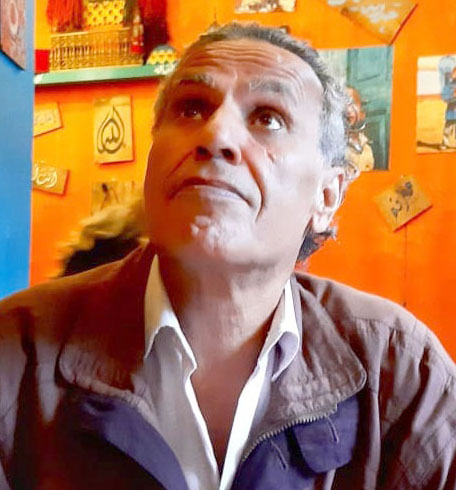 Hamdi Abu Golayyel, born in Fayoum, Egypt, in 1967, is a writer and a journalist. He is the author of numerous short story collections and novels, including Thieves in Retirement and A Dog with No Tail, which was awarded the 2018 Naguib Mahfouz Medal for Literature. He is editor-in-chief of the Popular Studies series, which specializes in folklore research, and writes for Arabic news outlets, such as al-Ittihad and al-Safir.
Hamdi Abu Golayyel, born in Fayoum, Egypt, in 1967, is a writer and a journalist. He is the author of numerous short story collections and novels, including Thieves in Retirement and A Dog with No Tail, which was awarded the 2018 Naguib Mahfouz Medal for Literature. He is editor-in-chief of the Popular Studies series, which specializes in folklore research, and writes for Arabic news outlets, such as al-Ittihad and al-Safir.
 Humphrey Davies (1947–2021) translated some thirty book-length works from Arabic, including The Yacoubian Building by Alaa Al Aswany, and was a two-time winner of the Saif Ghobash Banipal Prize for Arabic Literary Translation (2006 and 2011).
Humphrey Davies (1947–2021) translated some thirty book-length works from Arabic, including The Yacoubian Building by Alaa Al Aswany, and was a two-time winner of the Saif Ghobash Banipal Prize for Arabic Literary Translation (2006 and 2011).
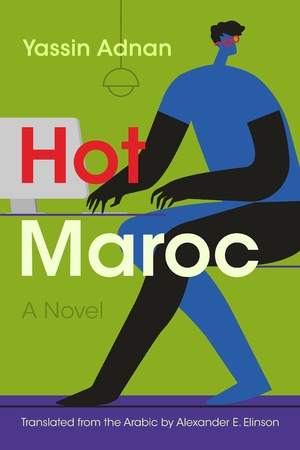 Yassin Adnan’s Hot Maroc is a vivid, satirical, and compelling panorama of Marrakesh’s changing landscape, its student movements, political intrigue, and move into internet culture, through the perspective of Rahhal, the “squirrel”, who stumbles his way through society, before becoming an undercover digital sensation. Weaving vivid character portraits, and lively social worlds with black humour, the novel grips the reader from first to last. Alexander Elinson’s deft translation is highly enjoyable, conveying the original’s light tone, wit, and underlying darkness.
Yassin Adnan’s Hot Maroc is a vivid, satirical, and compelling panorama of Marrakesh’s changing landscape, its student movements, political intrigue, and move into internet culture, through the perspective of Rahhal, the “squirrel”, who stumbles his way through society, before becoming an undercover digital sensation. Weaving vivid character portraits, and lively social worlds with black humour, the novel grips the reader from first to last. Alexander Elinson’s deft translation is highly enjoyable, conveying the original’s light tone, wit, and underlying darkness.
“Yassin Adnan’s amusing satire is an ambitious and wide-ranging novel. It has been skilfully translated by Alexander Elinson, who has produced a very readable novel in English, while also retaining a little of the Arabic style and flavour. Language is a topic on various levels within Adnan’s novel, which employs different registers of Arabic including colloquial Moroccan Darija alongside standard Arabic and classical Arabic, as studied by the protagonist.
“Through the life of the novel’s anti-hero, Rahhal, Adnan presents acute observations of human character and political shenanigans. Rahhal is simple, awkward and funny but also dangerous. But, like everyone else, he is just trying to survive. An original element of the comedy lies in the way Rahhal (The Squirrel) likens people’s characteristics to those of animals. He is married to a Hedgehog, his professor is an Elephant, and his university comrades include a Cow, a Lizard and some rats.
“The novel is a commentary on changing times in modern Morocco, chronicling the rise of the internet and the influence of media and the internet on society. In today’s world of fake news, the contrast between reality and people’s online personas and the manipulation of these by Rahhal and others seems particularly pertinent” (Becki Maddock, Prize Judge, 2022).
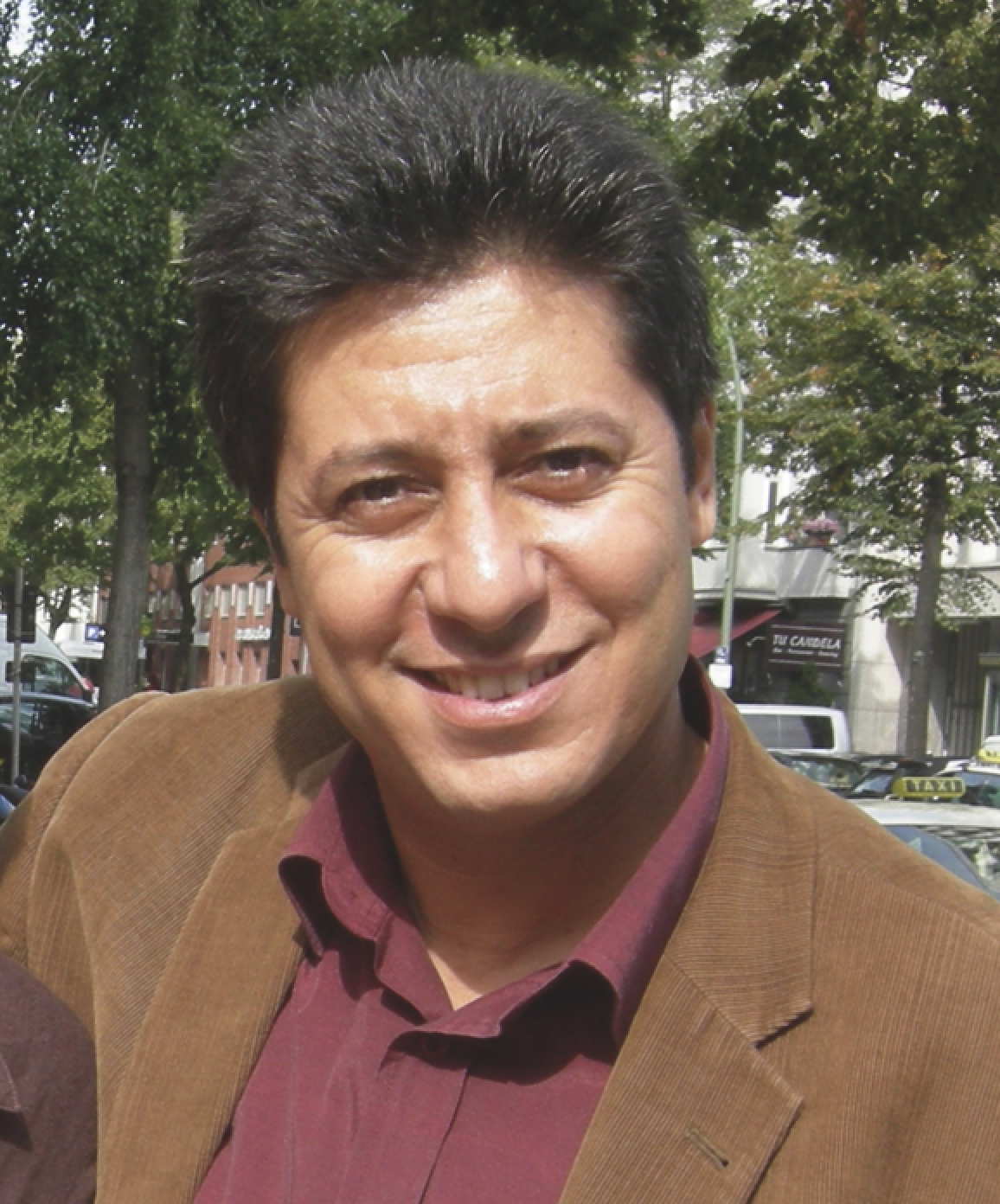 Yassin Adnan is a Moroccan writer, editor, and journalist. He is the editor of Marrakech Noir and the author of four books of poetry and three short story collections. Since 2006, he has researched and presented his weekly cultural TV program Masharef (Thresholds) on Morocco’s Channel One, and currently hosts the cultural Bayt Yassin (Yassin’s House) on Egypt’s Al-Ghad TV. Hot Maroc is his first novel.
Yassin Adnan is a Moroccan writer, editor, and journalist. He is the editor of Marrakech Noir and the author of four books of poetry and three short story collections. Since 2006, he has researched and presented his weekly cultural TV program Masharef (Thresholds) on Morocco’s Channel One, and currently hosts the cultural Bayt Yassin (Yassin’s House) on Egypt’s Al-Ghad TV. Hot Maroc is his first novel.
 Alexander E. Elinson is a scholar and translator. He teaches Arabic Language and Literature at Hunter College/CUNY and his research interests cut across the Middle East and North Africa, including Arabic and Hebrew literature from the Andalusi to the contemporary period. His current research is on language change and the use of Moroccan Arabic in writing. His previous translations include Youssef Fadel’s novels A Shimmering Red Fish Swims with Me – shortlisted for the 2020 Saif Ghobash Banipal Prize – and A Beautiful White Cat Walks with Me, as well as Allal Bourqia’s short story “A Noisy Disappearance in an Ill-Reputed Alley” in Marrakech Noir.
Alexander E. Elinson is a scholar and translator. He teaches Arabic Language and Literature at Hunter College/CUNY and his research interests cut across the Middle East and North Africa, including Arabic and Hebrew literature from the Andalusi to the contemporary period. His current research is on language change and the use of Moroccan Arabic in writing. His previous translations include Youssef Fadel’s novels A Shimmering Red Fish Swims with Me – shortlisted for the 2020 Saif Ghobash Banipal Prize – and A Beautiful White Cat Walks with Me, as well as Allal Bourqia’s short story “A Noisy Disappearance in an Ill-Reputed Alley” in Marrakech Noir.
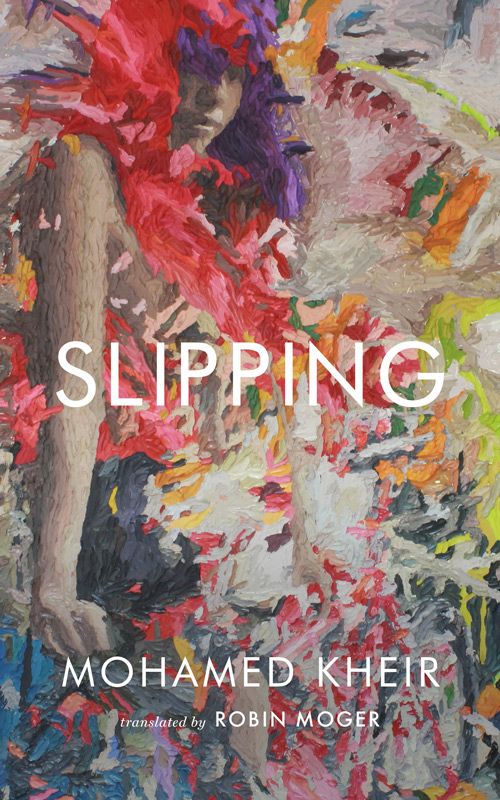 In Slipping, a journalist, Seif, is taken on a surreal, disturbing, yet incandescent tour of Egypt to witness events and sights magical and impossible. In the wake of the Arab Spring, the journey shifts from exterior to interior, exploring Seif’s past; his relationships, disappointments, and traumas. The result is a ghostly tour, shifting between life and death, and reality and imagination. Kheir’s first novel to be translated into English, Slipping provides a stunning introduction for Anglophone readers to this poet, short story writer, and novelist. Robin Moger’s translation captures the sense of movement and electric aliveness of the original. Each image of this enigmatic, vivid, and captivating novel shimmers in English as it does in Arabic, through Moger’s rendering of Kheir’s economic and poetic brilliance. The clamour of the city resounds alongside the surreal quiet, as the novel slips between genres and voices, between absurdity, dystopia, and the sublime. Moger captures this slippage, alongside the melancholy of the original, and the moments of sharp, sweet humour.
In Slipping, a journalist, Seif, is taken on a surreal, disturbing, yet incandescent tour of Egypt to witness events and sights magical and impossible. In the wake of the Arab Spring, the journey shifts from exterior to interior, exploring Seif’s past; his relationships, disappointments, and traumas. The result is a ghostly tour, shifting between life and death, and reality and imagination. Kheir’s first novel to be translated into English, Slipping provides a stunning introduction for Anglophone readers to this poet, short story writer, and novelist. Robin Moger’s translation captures the sense of movement and electric aliveness of the original. Each image of this enigmatic, vivid, and captivating novel shimmers in English as it does in Arabic, through Moger’s rendering of Kheir’s economic and poetic brilliance. The clamour of the city resounds alongside the surreal quiet, as the novel slips between genres and voices, between absurdity, dystopia, and the sublime. Moger captures this slippage, alongside the melancholy of the original, and the moments of sharp, sweet humour.
“A subtle, evocative, and moving portrait of Cairo and Alexandria post-revolution and the psychological aftermath of the Arab Spring. Like the two main characters, Seif and Bahr, a struggling journalist and former exile, we are thrown into an almost apocalyptic world rendered deliberately unstable and disorientating. On the one hand, it is a threatening landscape of broken promises and shattered dreams; on the other the worlds of its two protagonists literally slip seamlessly between reality, memory, myth, and dream. An impressive novel, all the more forceful as it does not directly engage with the pain of the political context that is its subject but instead portrays the strength of human resilience in the face of trauma and the transformative power of the imagination” (Susheila Nasta, Prize Judge, 2022).
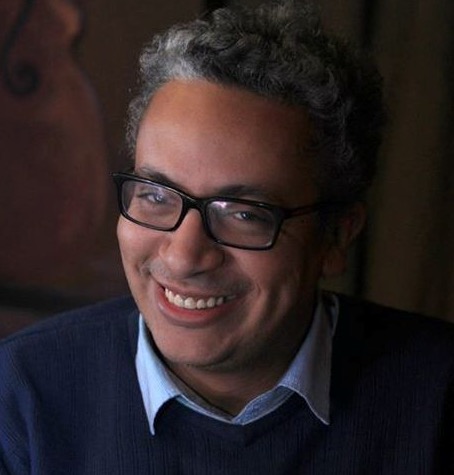 Mohamed Kheir is a novelist, poet, short story writer, journalist, and lyricist. His short story collections Remsh Al Ein (2016) and Afarit Al Radio (2011) both received The Sawiris Cultural Award, and Leil Khargi (2001) was awarded the Egyptian Ministry of Culture Award for poetry. Slipping (Eflat Al Asabea, Kotob Khan Publishing House, 2018; Two Lines Press, 2021) is his second novel and his first to be translated into English. He lives in Egypt.
Mohamed Kheir is a novelist, poet, short story writer, journalist, and lyricist. His short story collections Remsh Al Ein (2016) and Afarit Al Radio (2011) both received The Sawiris Cultural Award, and Leil Khargi (2001) was awarded the Egyptian Ministry of Culture Award for poetry. Slipping (Eflat Al Asabea, Kotob Khan Publishing House, 2018; Two Lines Press, 2021) is his second novel and his first to be translated into English. He lives in Egypt.
 Robin Moger is an award-winning translator of contemporary Arabic prose and poetry into English, currently based in Cape Town, South Africa. He won the Saif Ghobash Banipal Prize in 2017 for his translation of The Book of Safety by Yasser Abdel Hafez (Hoopoe Fiction 2017). His translations of fiction and prose works include The Book of Sleep by Haytham El Wardany (Seagull Books, 2020), Iman Mersal’s How To Mend: Motherhood and its Ghosts (Kayfa ta, 2018), Yasser Abdellatif's The Law of Inheritance (Seagull Books, 2018), All The Battles by Maan Abu Taleb (Hoopoe Fiction, 2017), Nael Eltoukhy’s The Women of Karantina (AUC Press) and Youssef Rakha’s The Crocodiles (7 Stories Press, 2014).
Robin Moger is an award-winning translator of contemporary Arabic prose and poetry into English, currently based in Cape Town, South Africa. He won the Saif Ghobash Banipal Prize in 2017 for his translation of The Book of Safety by Yasser Abdel Hafez (Hoopoe Fiction 2017). His translations of fiction and prose works include The Book of Sleep by Haytham El Wardany (Seagull Books, 2020), Iman Mersal’s How To Mend: Motherhood and its Ghosts (Kayfa ta, 2018), Yasser Abdellatif's The Law of Inheritance (Seagull Books, 2018), All The Battles by Maan Abu Taleb (Hoopoe Fiction, 2017), Nael Eltoukhy’s The Women of Karantina (AUC Press) and Youssef Rakha’s The Crocodiles (7 Stories Press, 2014).
For the full short list report on www.banipaltrust.org.uk click here
Download a PDF of this shortlist announcement